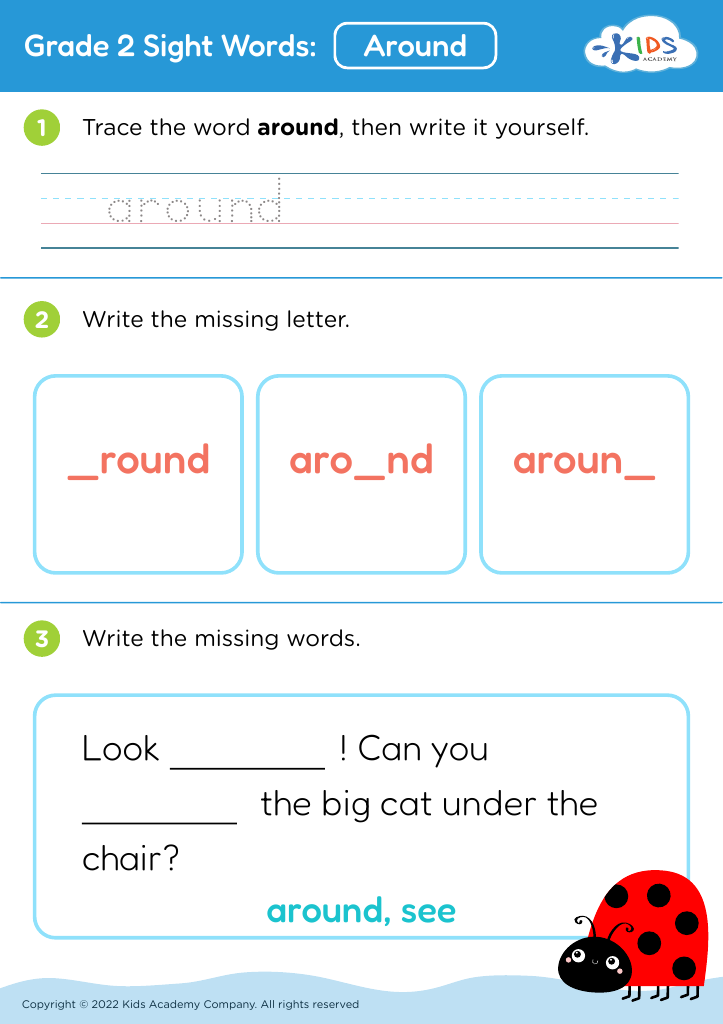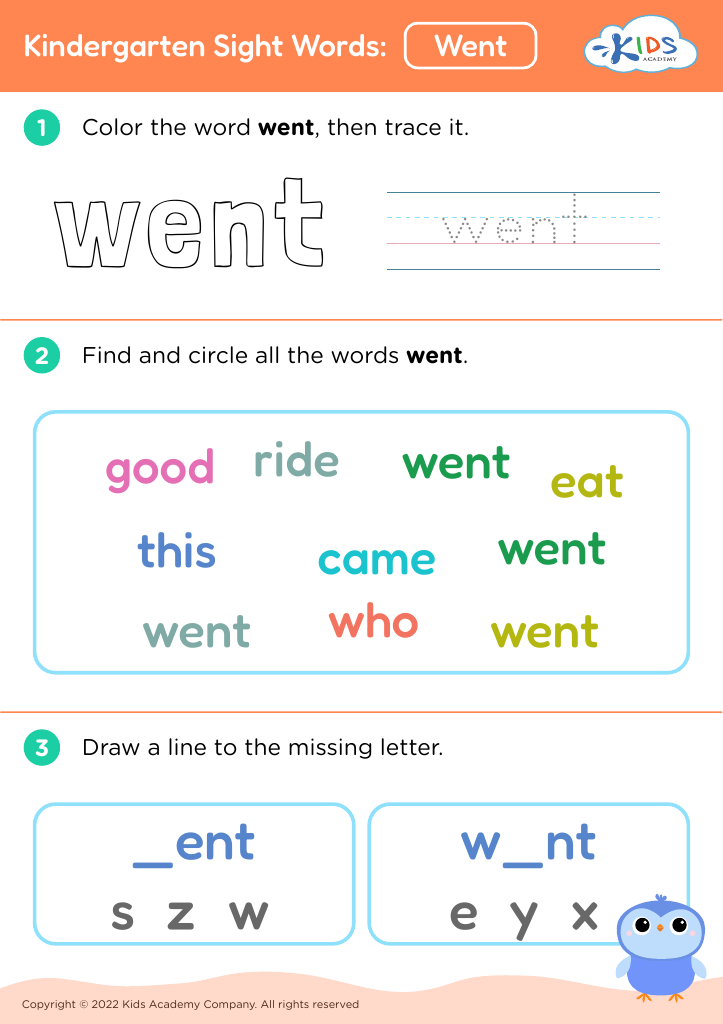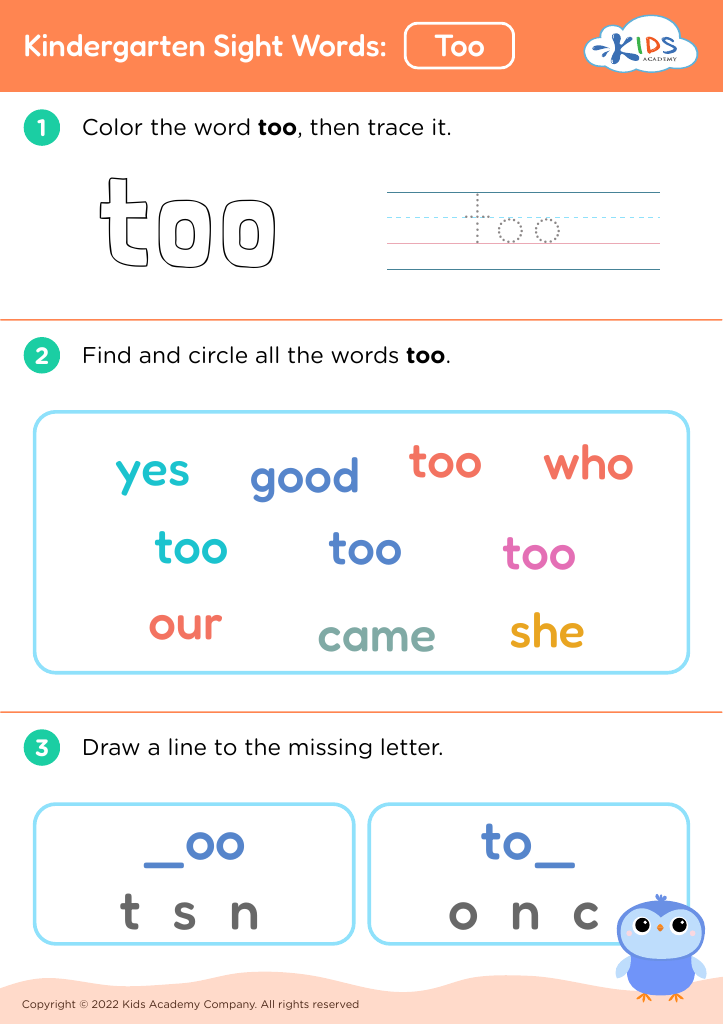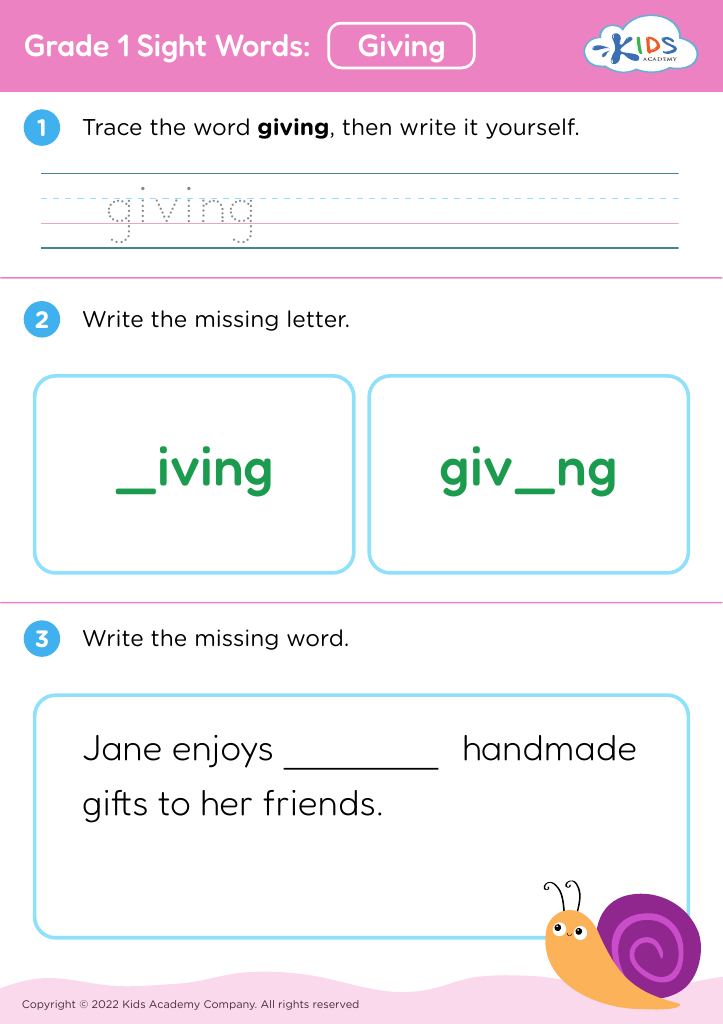Problem-Solving Skills Worksheets for Ages 3-7 - Page 16
367 filtered results
-
From - To
Developing problem-solving skills in children aged 3-7 is crucial for their cognitive, social, and emotional growth. During these formative years, children begin to engage with their environment in more complex ways, navigating challenges that require critical thinking and creativity. Parents and teachers play a pivotal role in nurturing these skills, as strong problem-solving abilities lay the foundation for lifelong learning and adaptability.
Fostering problem-solving skills encourages independence; children learn to approach challenges confidently and think through various solutions. This process not only enhances their analytical abilities but also boosts their resilience. When children encounter setbacks, they develop a growth mindset, understanding that struggle is a natural part of learning.
Moreover, problem-solving activities often promote collaboration and communication, essential social skills for future interactions. When children work with peers to find solutions, they learn empathy and cooperation, preparing them for team-based environments later in life.
Ultimately, investing in the development of problem-solving skills equips children with the tools they need to navigate an increasingly complex world, fostering their ability to think critically, make informed decisions, and adapt to change—all essential qualities for their future success in school and beyond.



























